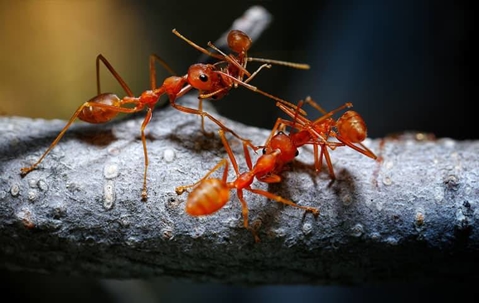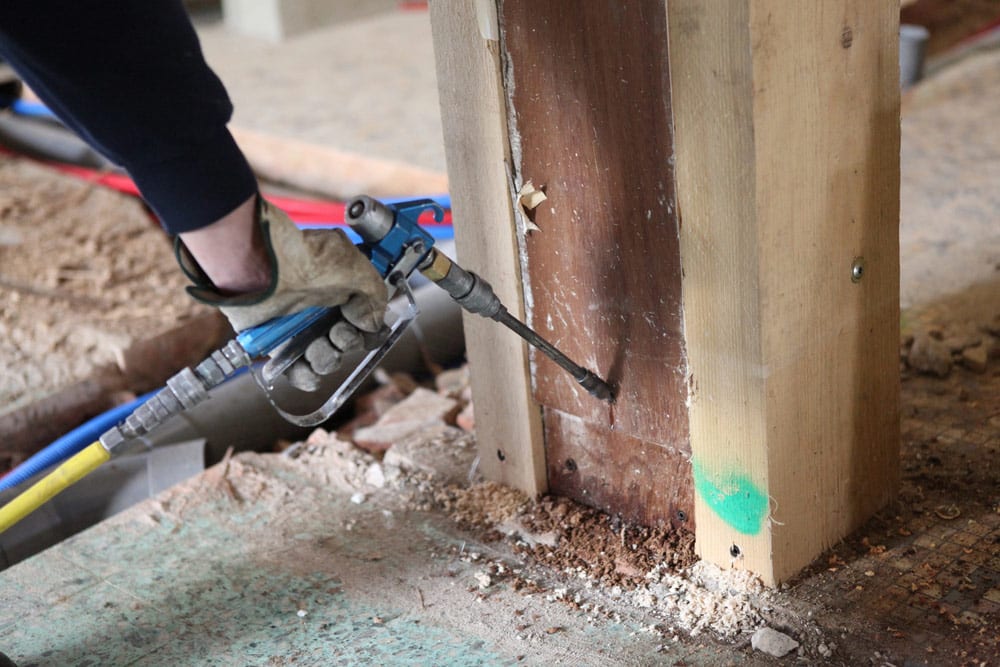Advanced Termite Control: Proven Methods for Removing Termite Infestations
Wiki Article
Ecological Impact of Parasite Control: Harmonizing Effectiveness With Sustainability
The ecological effect of insect control is a vital concern that requires a fragile balance in between achieving efficiency in managing parasites and making sure sustainability of our communities. As we strive to secure our plants, homes, and health and wellness from the risks positioned by parasites, the methods we employ can unintentionally hurt the setting. From using dangerous chemicals that leak into our dirt and water to the unplanned repercussions on non-target varieties, the effects of standard pest control methods are far-ranging. Nevertheless, there are arising techniques that supply wish for an extra sustainable method to pest management. These solutions not only objective to attend to the instant pest problems yet also consider the long-term wellness of our planet.Dangerous Chemicals in Bug Control
The application of damaging chemicals in insect control poses significant ecological and wellness dangers that warrant cautious consideration and reduction techniques. Chemicals, herbicides, and insecticides are commonly used to eliminate pests, yet their prevalent application can cause unplanned consequences. These chemicals can infect dirt, water resources, and the air, impacting not just the targeted parasites yet also helpful pests, wildlife, and people.
To attend to these threats, integrated parasite administration (IPM) techniques are being promoted as a more lasting choice. IPM involves a mix of approaches such as biological control, habitat adjustment, and the targeted usage of pesticides as a last resource (ant control lexington nc). By adopting a holistic technique to pest control, we can lessen the environmental and health influences connected with hazardous chemicals while efficiently handling pest populations
Effect On Non-Target Types
Considering the unintended effects of parasite control techniques, the impact on non-target species is an important facet that needs thorough examination. While bug control actions aim to target specific bugs, other organisms in the community might be inadvertently affected. Non-target varieties, including helpful bugs, birds, creatures, and also plants, can experience indirect or direct harm from pesticide applications or biological control methods.Insecticides designed to battle a specific insect parasite may damage pollinators like bees or natural killers such as ladybugs. Organic control representatives, if not species-specific, can pose dangers to unintended targets, disrupting the ecological balance.
To alleviate the influence on non-target species, integrated insect management (IPM) approaches that highlight an all natural strategy to pest control are recommended. These techniques prioritize making use of eco-friendly techniques, minimizing injury to advantageous microorganisms while efficiently handling pest populations. Carrying out comprehensive danger assessments and keeping an eye on the outcomes of parasite control efforts are essential action in safeguarding non-target types and promoting total environment health.
Soil and Water Contamination
Unexpected ecological effects of pest control approaches prolong past affecting non-target species, with considerable effects for soil and water contamination. Chemicals, herbicides, and chemical fertilizers made use of in parasite control can seep into the dirt and pollute groundwater, presenting a hazard to both earthbound and marine ecosystems. Dirt contamination can interfere with the balance of microbes necessary for vitamins and mineral biking and plant growth, causing decreased dirt fertility and performance. Additionally, these chemicals can continue the environment for prolonged durations, gathering in the dirt and potentially getting in the food chain.Water contamination is another essential concern connected with bug control methods. Overflow from agricultural areas treated with pesticides can lug these chemicals into close-by water bodies, impacting water microorganisms and water top quality. Contaminants in water resources can have far-ranging effects, affecting not only aquatic life but additionally human health and wellness via the usage of polluted water or aquatic organisms. To mitigate dirt and water contamination from parasite control tasks, incorporated parasite administration techniques that focus on sustainability and reduce chemical inputs are vital.
Air Air Pollution From Chemical Usage
Exposure to air-borne chemicals during agricultural applications presents a considerable problem for air contamination control procedures. Additionally, chemical drift, where pesticides are brought by the wind to unintended areas, can lead to the contamination of nearby ecological communities and water bodies.
Approaches for Sustainable Parasite Control
In the realm of agricultural methods, applying lasting bug control strategies is extremely important for keeping go to my blog environmental equilibrium and protecting plant yields. Sustainable pest control highlights using eco-friendly techniques to take care of pest populations successfully while minimizing injury to non-target microorganisms and environments. Integrated Parasite Administration (IPM) is a widely taken on approach that combines organic, cultural, physical, and chemical control methods to accomplish long-lasting pest administration services.Plant rotation and diversity are likewise effective methods to interfere with pest life cycles and create much less desirable problems for bugs to grow. Inevitably, by integrating these sustainable pest control approaches, farmers can accomplish a balance in between pest administration performance and environmental stewardship.
Verdict
Finally, the environmental effect of insect control techniques need to be carefully taken into consideration to stabilize efficiency with sustainability. Harmful chemicals made use of in pest control can lead to dirt and water contamination, air pollution, and harm non-target species - ant control. It is essential to apply lasting bug control strategies to decrease these unfavorable impacts on the environment and promote a healthier ecosystem for future generationsBy taking on a holistic strategy to pest control, we can lessen the ecological and wellness influences connected with harmful chemicals while effectively managing pest populaces.

To mitigate the air contamination triggered by chemical usage, it is crucial to embrace integrated parasite monitoring techniques that focus on the use of non-chemical parasite control approaches, such as crop rotation, all-natural killers, and resistant plant selections. Lasting bug control stresses the use of ecologically pleasant techniques to take care of bug populaces properly while decreasing harm to non-target organisms and ecological communities. Integrated Insect Management (IPM) is an extensively taken on strategy that combines biological, cultural, physical, and chemical control techniques to attain long-term insect monitoring remedies.
Report this wiki page